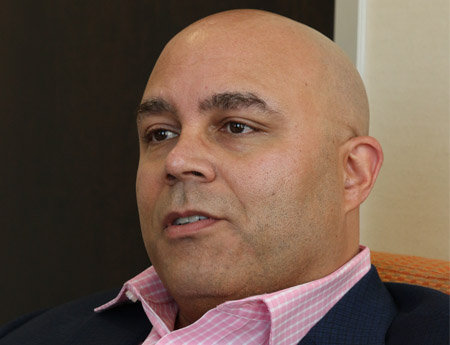Cable Ops Seek Title II Stay

The smarter way to stay on top of broadcasting and cable industry. Sign up below
You are now subscribed
Your newsletter sign-up was successful
The National Cable & Telecommunications Association and American Cable Association have jointly asked the FCC to stay its decision to reclassify ISPs under Title II while a federal court considers the cable operators—and telecom ISPs—challenges to the order.
That makes two cable MPs (Michael Powell and Matt Polka), looking to arrest the FCC's effort to apply common carrier regs to their access services.
NCTA and ACA are not challenging the rules against blocking, throttling or paid prioritization, as is the case with Telecoms who also filed for an FCC stay Friday (May 1).
“Petitioners do not seek a stay of the core open-internet rules that were the original aim of this proceeding, but ask only to preserve the status quo that the Commission itself has maintained for decades," said the cable ops. "A brief delay in implementing the Order’s abandonment of that approach, while a court adjudicates the validity of the reclassification and the unreasonable-interference standard, will cause the Commission or the public no prejudice. To the contrary, a stay would provide stability and avoid costly uncertainty and confusion that would result if the Order takes effect but is later overturned.”
"Litigation is a regrettable path, given it will likely take years to resolve and the final outcome is unknown. For this reason, we continue to urge Congress to settle the matter through legislation, which can permanently codify open Internet protections, while avoiding the damaging consequences of an ill-suited regulatory model," said NCTA president Michael Powell.
“ACA is filing this stay request in an effort to prevent the irreparable harm that awaits smaller ISPs as a result of Title II reclassification adopted by the FCC on February 26," said ACA president Matt Polka. "Seeking a stay is an extraordinary step for ACA and its members, but a necessary one, because the FCC declined to protect small ISPs, financially the most vulnerable companies, from being inundated in a sea of red tape that will cause them harm starting on day one that can’t be mended after-the-fact."
To get a stay, they would have to demonstrate harms from allowing the rules to take effect while they are being appealed in court. They had a bunch of them:
The smarter way to stay on top of broadcasting and cable industry. Sign up below
1. The Order subjects Internet providers to vague and onerous standards, creating significant uncertainty about the introduction of new services and exposing providers to costly litigation -- including class action lawsuits -- that will lead to rate regulation.
2. Reclassification subjects Internet providers to new obligations regarding customer information that will require purchasing new equipment, implementing new monitoring procedures and hiring and training new staff to comply.
3. Reclassification opens the door for pole owners to impose higher attachment rates, significantly raising the cost of deploying broadband.
4. Reclassification opens the door to state and local taxes and fees for ISPs and their customers.
The FCC rules will go into effect mid-June barring a stay from the commission or the court.
Contributing editor John Eggerton has been an editor and/or writer on media regulation, legislation and policy for over four decades, including covering the FCC, FTC, Congress, the major media trade associations, and the federal courts. In addition to Multichannel News and Broadcasting + Cable, his work has appeared in Radio World, TV Technology, TV Fax, This Week in Consumer Electronics, Variety and the Encyclopedia Britannica.

